Author Archives: Darlena Cunha
Author Archives: Darlena Cunha
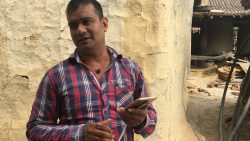
The Digital Empowerment Foundation believes building community networks is something everyone can do. And people are doing it. Internet connectivity may be important for our global society, but in rural India it’s a luxury not many villages have access to. Osama Manzar, the founder of the Digital Empowerment Foundation, has spent the last decades trying […]
The post Internet by the people, for the people – a view from the Digital Empowerment Foundation appeared first on Internet Society.
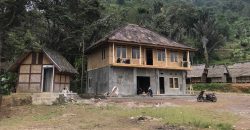
A young person scrolls through Instagram to see the latest updates on their favorite profiles. To many around the world this doesn’t seem strange, but for a hamlet outside of a small village in Indonesia’s rural southwest, it’s revolutionary. And it’s in part thanks to the work of an Internet entrepreneur named Gustaff Harriman Iskandar. […]
The post The Common Room: How an Artist Is Connecting Rural Indonesia One Village at a Time appeared first on Internet Society.
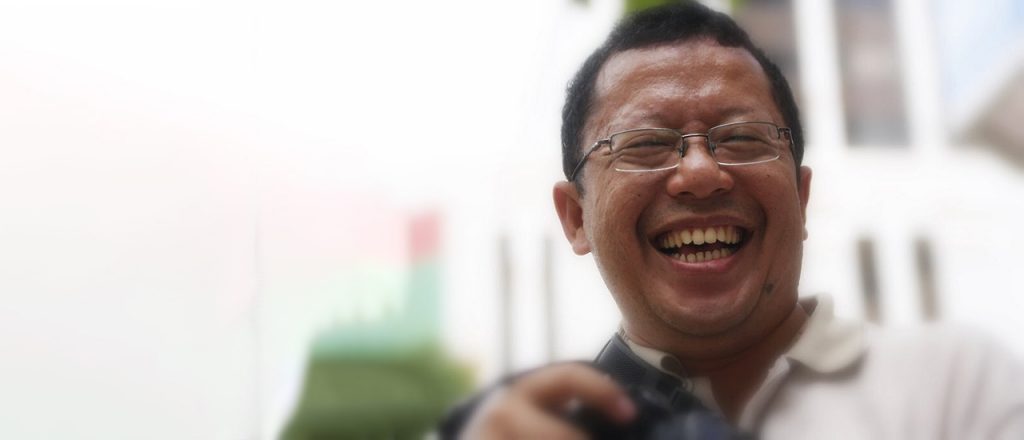
Onno Purbo is a people person. It’s not typically something you hear about an engineer. But it is through his approach to education in the Internet sphere that Indonesian villages have access at all.
“The other engineers, they are very much engineer,” Purbo said. “A problem is solved by coding, is solved by an antenna, is solved by a product of some kind. My approach is a more human approach. Most engineers introduce their products, I give people the knowledge.”
Purbo, as this year’s Jonathan B. Postel Award winner, uses his experience, knowledge, and expertise not only to build networks and improve access for his fellow Indonesians, but to teach them how to do it themselves. He does this through hours of work on social media channels, speaking one-on-one with hundreds of thousands of followers whenever they have questions or concerns.
“I use social media as a free, huge class[room]. Effective and efficient empowerment processes were not possible with the old mechanism where we would rent rooms or buildings with professional event organizers,” Purbo said. “These days, for example, thousands of viewers may easily view any of my videos on YouTube.”
With nearly 700,000 followers on social Continue reading
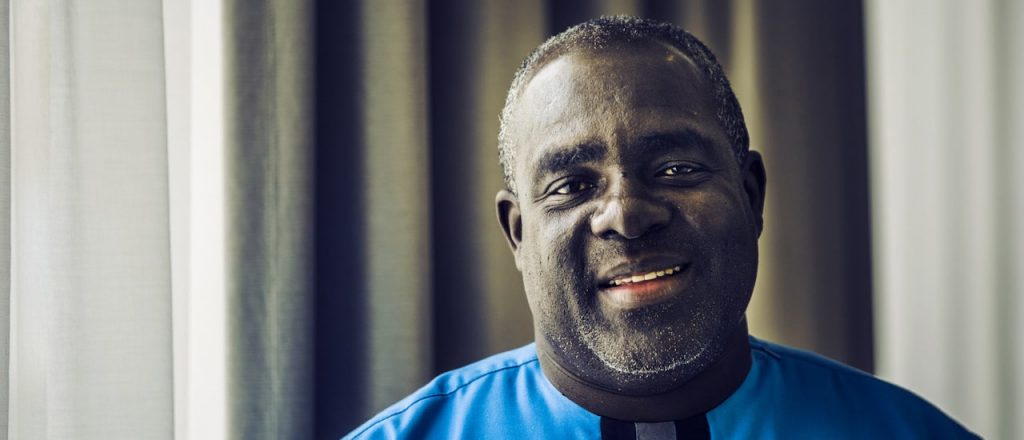
Alain Aina has been a key player in the Internet in Africa. While the winner of this year’s Jonathan B. Postel Award has had support from organizations and others, his leadership in building technical communities has helped countless people to spread the Internet across Africa and the world.
As the chief technology officer of the West and Central Africa Research and Education Network (WACREN), Aina has been building a Regional Research and Education Network to interconnect National Research and Education Networks (NRENs) in the region and connect them to the global Research and Education Network. He wants the world to see the work of Africa’s premier researchers and carve out its spot in the academic world – in a way that would be impossible without the resources of this new network and community. He also contributes to AfricaConnect2, a project that supports the development of high-capacity networks for research and education across Africa, by building on existing networks in Eastern, Northern, and Southern Africa to connect to West and Central Africa’s WACREN.
Aina fell into this work after graduating in the early 90s with a degree in electrical engineering and in the maintenance and analysis of computer systems. He was hired to be a technical seller Continue reading
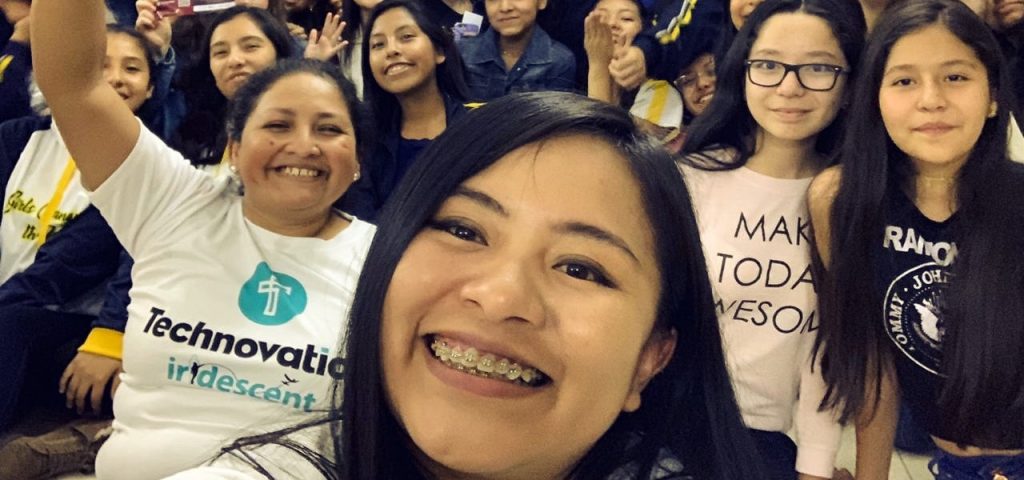
Young people everywhere are building technology, mobilizing communities, and raising their voices to shape policies that create an Internet that’s truly for everyone.
That’s why we’re partnering with the not-for-profit and non-governmental organization AIESEC on a pilot project to train 500 young people on Internet-related skills in Bolivia, Nepal, Namibia, and Kenya.
It’s our hope that this project will be the start a journey that will result in even more young voices joining a community of thousands of people around the world who believe in the open Internet.
Young people like Pamela Gonzales.
At only 24 years old, Gonzales is the co-founder of Bolivia Tech Hub, an early stage incubator that serves as one of La Paz’s only support systems for the city’s tech community, helping entrepreneurs to learn, develop, and collaborate on new projects.
She’s impacting hundreds of lives, but she says it didn’t come easily.
In her first year of university, she partnered with a friend of hers, a local web developer, and together they secured funding and built something new.
“My mission was to find a place to learn the things I couldn’t learn in the university,” Gonzales said. “I found there were a lot of students Continue reading
With so many moving parts to advancing Internet access and enabling communities to reach the rest of the world, the biggest key to success, according to this year’s Jonathan B. Postel Award winner, is listening.
Steven Huter listens. He says it’s his most important job. The Director for the Network Startup Resource Center (NSRC) and a Research Associate at the University of Oregon says before configuring community networks and setting Internet development goals, his organization has to make sure they are solving the right problems.
“Listening first to what local Internet developers request and desire in terms of assistance, based on their respective conditions and challenges, is vital for a successful outcome,” Huter says.
Only half the people in the world have Internet access, and the NSRC works on creating “a sustainable community of Internet-savvy engineers and local operators that can enable continuous progress in their countries to bring more affordable Internet access and better network performance for their respective communities.”
Essentially, they go to areas in need, help set up the hardware and digital necessities for Internet access, and train local operators and system workers to handle that network independently. And Huter has been an integral part Continue reading
The age-old tradition of the physical marketplace may be crumbling, and many women-led families in Costa Rica are feeling the pinch. In fact, in Jazmin Fallas Kerr’s hometown, Desamparados, nearly half of all families with women as head of household are in poverty.
To combat that, Kerr made a digital bridge between creation and commerce. Hyena is an Internet-based marketplace which allows women artisans to sell their handiwork online for a fair price. The site now has more than 50 local women courting customers for their crafts. Kerr’s upbringing helped her develop the idea.
“I was inspired by my mother; she is a family leader and artisan,” Kerr said. “We are from an area of social vulnerability, and I know the difficulties these families face.”
The site helps solve a more universal problem. It gives women the flexibility and time to work outside of homemaking responsibilities.
“[I want to] empower women to create better opportunities for their families,” Kerr said. “It is being achieved through a platform involving different actors in society that involves from fair trade to online education.”
Winner of the “Creator of Digital Change” contest, Hyena exists thanks to that $3,000 prize money from the Continue reading